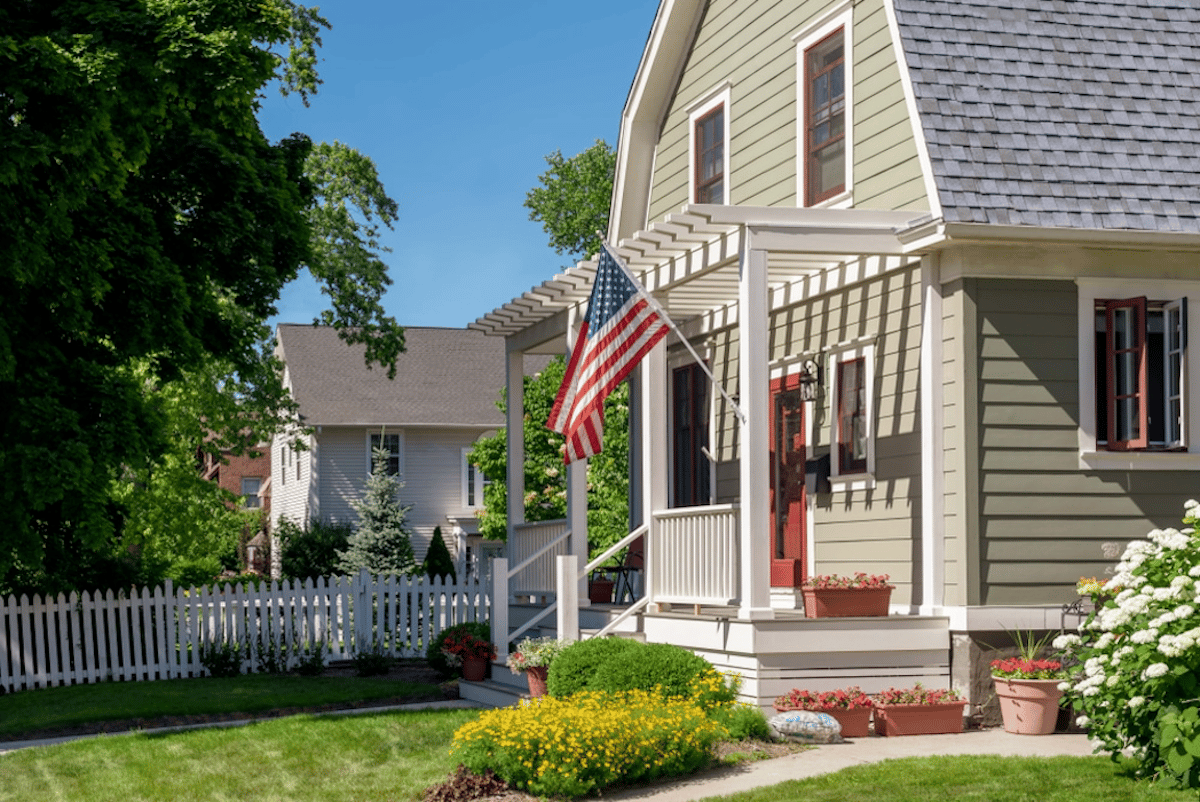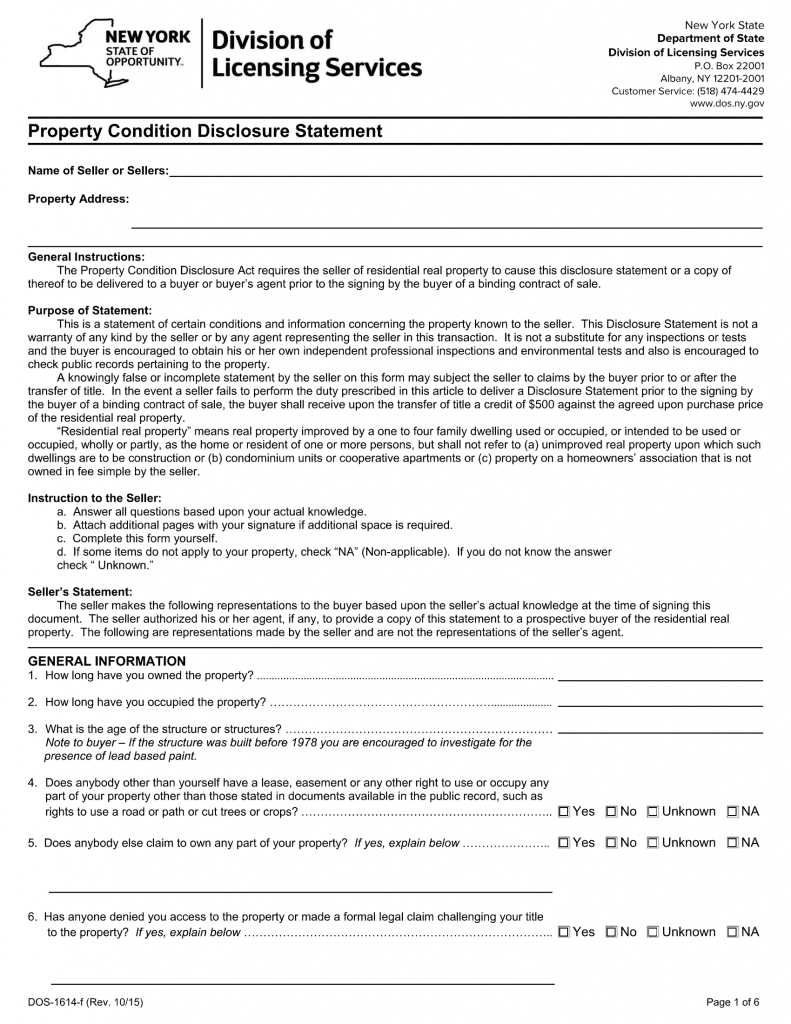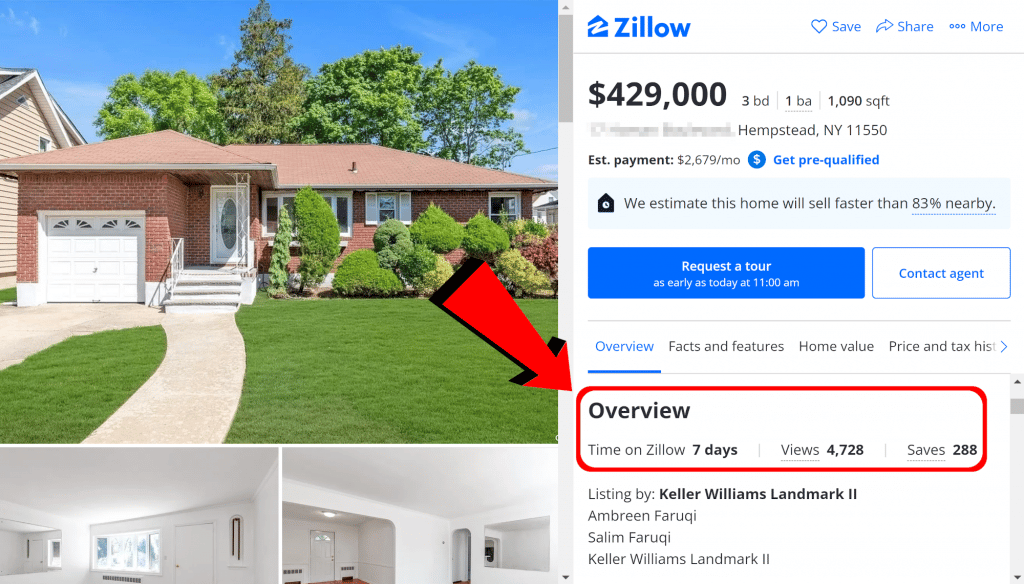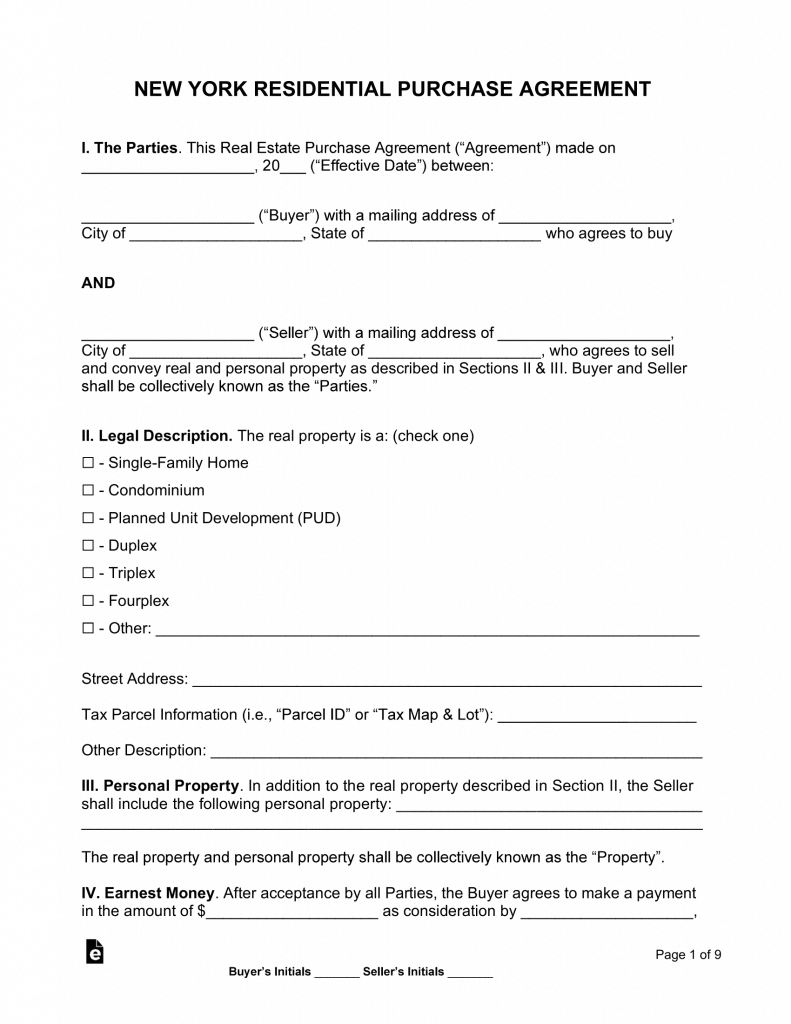
Published
If you’re selling a house in New York State but need help understanding the process, we’re here to help.
Our step-by-step guide breaks down how to sell a house in The Empire State from start to finish. We discuss important steps in the process, including how to prepare and list your home for sale, determine your estimated closing costs, and calculate potential capital gains taxes.
Now, for some good news: You can save money on your major home sale costs by shopping around for agents and comparing your options.
For example, our free agent matching service pre-negotiates lower listing commission rates for you. Sellers pay a 1.5% listing agent commission rate ($3,000 minimum) – much lower than the average New York rate of 3.00%, according to our data.
Steps to selling a house in New York
- Decide how you plan to sell
- Sign a listing agreement
- Determine a list price
- Prepare your home for sale
- Market and show your home
- Negotiate with buyers
- Review paperwork and sign
- Conduct inspections
- Close on your sale
1. Decide how to sell
Should you sell your home with an agent, for sale by owner, or to a cash buyer? Here’s how to decide.
Option 1. Sell with a real estate agent
Hiring an experienced, licensed New York realtor is the best way to get a fair price for your home.
Quality and price vary by agent, so you’ll need to do some research to find the best fit for you.
We recommend finding at least 2-3 local seller agents to compare and choose from. Comparing options helps you find the best fit for your situation and could save you thousands on realtor commissions.
To save the most time and money, stick to sources that make it easy to find quality options.
Agent matching services
Agent matching services provide the best way to connect to experienced, local real estate agents, and to achieve commission savings.
How it works: You provide basic info about your home and what you’re looking for in an agent. The service quickly matches you up with top New York real estate agents from major brokerages (like Brown Harris Stevens, Compass, Corcoran Group, and Douglas Elliman).
Some agent matching services can also potentially save you money on realtor commissions, with no hidden fees.
For example, we pre-negotiate a 1.5% listing fee with our network of top agents. That’s much lower than the average New York listing agent commission of 2.7%.
How to compare agents
It’s time to set up interviews, meet with agents, and choose one to work with.
We recommend comparing agents’ experience, customer reviews, marketing skills, and commission rate before choosing one.
Option 2. Sell FSBO in New York
Selling your New York home “for sale by owner” saves you on the listing agent commission. The fee averages 2.7% of the home sale price in New York. So, you’d potentially save close to $13,500 on a $500,000 sale price.
However, selling a house can be a long, stressful process, with a ton of paperwork and legal requirements. Here are some potential pitfalls:
- You risk costly mistakes during the process. An experienced NY realtor can help you avoid common mistakes made by FSBOs, like missing important paperwork.
- It’s time-consuming. You’ll handle all of the work that your agent would take care of. This includes photography and marketing, buyer showings, contract negotiations, setting up inspections and appraisals, and scheduling closing.
- You’ll still likely owe a buyer’s agent commission, which ranges from 2% to 3% of your home’s final sale price.
- There’s no guarantee you’ll save money. Studies show that FSBO properties sell for 6% less than agent-sold homes, or $60,000 less on a $1 million home. That negates any commission savings you’d earn from selling FSBO.
Still set on FSBO? Check out our guide to selling without a realtor in New York.
Option 3. Sell a house fast to a cash buyer
Your final option: Sell your house ASAP to a cash buyer (or “we buy houses” company) in New York.
This is probably your fastest, most convenient option. iBuyer companies can close in as fast as 10 days — much quicker than selling traditionally (60-90 days).
It’s convenient, too, as you won’t need to do any of the usual work required to sell a home. That means you can sell your New York home as-is, with no pre-listing repairs or improvements, house cleaning, or home staging required.
So, what’s the catch? You probably won’t net nearly as much money compared to a traditional sale. Cash buyers typically offer between 50% to 70% of a home’s market value.
Need to sell a house fast in NY? Next steps
- Check out the best iBuyer companies, which pay cash and can close in as fast as 10 days.
- Read our advice on how to sell your house fast without losing money.
- Research top cash buyer companies in the state, like We Buy Ugly Houses and Fair Offer NY.
2. Sign a New York listing agreement and seller disclosures
It’s time to read and sign a New York listing agreement to get your house on the market!
The listing agreement contains your anticipated listing date, initial list price, what’s included (or not included) in your sale, where the listing will be marketed, and the length of your agreement.
Key things to pay attention to include:
- Type of listing agreement. Most agents work under an exclusive right-to-sell listing agreement (single agency). The agent works solely for you and gets paid regardless of whether they bring forward a buyer or not.
- Listing commission rate. Make sure the agent’s stated commission rate matches up to what’s on the listing agreement.
- Items that convey with the property. You’ll need to write down which items you plan to take with you (such as appliances and light fixtures).
Realtor disclosure requirements
New York law requires agents to provide you with an agency disclosure form, which describes all of the agent’s legal duties to you.
New York has three basic types of real estate agency agreements:
- Single agent relationship. The agent or broker represents only one party (either the buyer or seller) and acts as a fiduciary. Agents often recommend their clients work under a single agent relationship — it gives their clients the most protection compared to other options.
- Dual agency. Agents can represent the seller and buyer in the same deal, while also acting as fiduciaries for both parties. This might happen if your listing agent brings a buyer to the table.
- Dual agency is fairly common in New York State, but a legal memo by the Department of State cautions against the practice. If dual agency is used, the agent must clearly explain the situation to both parties and obtain their written consent.
- Open listing. The agent lists your house on a non-exclusive basis, meaning you retain the option of selling your home by yourself (FSBO) or through another agent. You can sign open listing agreements with as many agents as you want, and they essentially compete with each other to land a buyer. You only owe a commission to whichever agent sells the home, and you typically only pay a buyer’s agent commission (so you don’t need to pay a listing commission).
Contact a local real estate attorney for more advice on New York listing agreements and required disclosures.
Seller’s property disclosure: What do New York sellers need to disclose?

Historically, New York was a “buyer beware” state in which home buyers were responsible for discovering any defects through inspections. That has changed in recent years with new laws placing more responsibility on sellers to disclose problems with the home.
Buyers and sellers in any real estate transaction in New York must sign the property condition disclosure statement. Sellers must provide it to the buyer as soon as possible before transferring the title.
Sellers must notify buyers about any defects that may affect the value of the home or the buyer’s readiness to purchase it.
These may include:
- Structural defects.
- Any structural additions to the property (e.g. new bedrooms).
- Flooding problems, or major weather-related damage to the property.
Other potential issues include a home located in a designated floodplain or wetland, and the presence of any fuel storage tanks above or below ground (now or at any time in the past).
Property condition disclosure requirements are prescribed by New York law (here’s the current language as of January 1, 2021).
Ask your real estate attorney or agent for more information on your property disclosure requirements.
3. Price your home
Your next step is to determine a competitive listing price for your home.
Home value estimators can provide you with a quick ballpark estimate of your home’s potential value, based on your property’s key features, recent home sales, active listings, neighborhood data, and local market trends.
However, your agent should provide you with a comparative market analysis (CMA) report. It’s an estimate of your home’s fair value, based on a visual inspection of its condition, renovations and upgrades, and what similar homes have recently sold for in your area.
A CMA is a great tool to help you and your agent set a fair listing price for your home. But it’s just a recommendation: you can always list for more (or less) than the CMA valuation.
Is a CMA free in New York?
Most New York realtors will perform a CMA for free to try to win your business. It’s presented during your initial interview with the agent.
You may have to pay for a CMA (or broker price opinion) if you’re selling “for sale by owner” and just need a professional pricing recommendation.
» Get a CMA: Request a free CMA from a New York real estate agent
If you’re set on selling your home without an agent, we strongly advise you against using home value websites, like Zillow or Realtor, to price your home. Home value websites provide a rough estimate of your home’s potential value and can be off by tens of thousands of dollars.
4. Prepare your home for sale
It’s time to get your home ready for showings!
Gather important documents
Most New York home sales require a variety of documents and records for closing. Documents may include a mortgage statement, disclosure forms, the affidavit of title, and any homeowners association (HOA) forms and guidelines.
Find any utility bills, home warranties, or appliance manuals you might have, in case the buyer requests them.
Get a pre-listing inspection
Consider a home inspection (which costs $350-800 in New York) if you think your home has an issue that could negatively impact your sale.
A pre-listing inspection can potentially help you spot and fix issues with your home before those issues surface on a buyer’s home inspection or appraisal.
However, an experienced real estate agent should advise you on whether or not a pre-listing inspection is worth your time and money.
Make home repairs and improvements
Based on the results of a pre-listing inspection (and the condition of your home), it could be worth making certain repairs or improvements.
According to Richard Romano of CENTURY 21 Cor-Ace Realty, common home inspection issues in New York are related to:
- Termite activity, past or present
- Broken or displaced roof shingles
- Old, deteriorating windows with leakage that are not properly closing
- Minor water leaks such as drains or sink supply lines
- Electrical outlets that are not properly grounded or installed
If you’re selling an older home, the inspector may recommend installing ground-fault circuit interrupter (GFCI) protection for the electrical outlets.
Your agent is in the best position to advise you on which repairs or improvements to make before listing. In a strong seller’s market, you might not have to make any updates.
Declutter, depersonalize, and clean
Now is the perfect time to reorganize your home before showings. Host a garage sale or donate any unused or unwanted items taking up space.
Make sure all areas of your home are spotless. Pay careful attention to areas where buyers will notice dirt or dust the most, like your kitchen and bathrooms.
Aim to depersonalize every room. Remove family photos, artwork, and posters — it’s best to keep the buyer’s attention on your home, not your belongings.
Consider home staging
Staging can increase your home’s appeal and lead to a higher sale price. But it’s expensive in New York compared to other states, and it doesn’t make sense for every seller.
At the high end, staging a typical Manhattan apartment for six months can set you back $20,000–30,000.
More realistically for the average homeowner, Staging Hudson Valley LLC charges the following prices:
- $225 for a staging consultation and report
- $125 per hour for a design consultation
- $425 for a four-hour home staging and redesign session using your existing furnishings
Pricing depends on the size of your home, the number of rooms staged, and your local market. Consult with your realtor for advice on whether or not home staging is right for you.
How much money can I make on my New York home sale?
Our calculator shows you what you might earn in a home sale after deducting typical home sale costs, including realtor commission and closing costs.
Realtor commission
New York sellers pay an average realtor commission rate of 5.11%. The fee is usually split roughly evenly between the listing agent and the buyer’s agent.
While that’s the average rate, you can potentially save thousands by using our agent matching service or negotiating a lower rate with agents.
Closing costs
New York sellers pay an average of 1.1% of the home sale in closing costs, which includes title service and closing fees, transfer tax, and property taxes.
It does not include a realtor’s commission or other potential costs, such as home staging, relocation expenses, a buyer’s closing costs (if you agree to pay them), or capital gains tax.
» MORE: What to know about seller closing costs
Mortgage/liens
An example of what a seller might owe on outstanding mortgage or liens, which is paid in full at closing by your attorney or title company.
Net proceeds
The amount of money you’d walk away with from your home sale at various price points after deducting commission, closing costs, and mortgages.
You can also request a seller’s net sheet from your realtor. It estimates what you may net in your home sale after deducting all fees and expenses from your expected sale price.
5. Market and show your home to buyers

Now it’s time to actually list your home and host potential buyers!
Your listing agent will put a “for sale” sign on your front lawn and post your home for sale on the multiple listing service (MLS): a database most real estate agents use to market and sell properties.
Your agent should also list your home on all popular real estate sites (like Zillow, Trulia, and Realtor), and they might also host an open house to drum up more interest.
If you’re selling for sale by owner, you might want to list your home on the MLS via a flat-fee MLS service, so it reaches buyers’ agents and their clients.
My listing is live: What happens next?
Listing your home for sale can be both exciting and nerve-racking! Here’s what to do next:
- Have a plan in place for your pets. Some sellers keep their pets in the backyard or garage during showings, while others choose to remove them from the home entirely. It’s your call — not the buyers! If you plan to keep pets in your home for showings, you’ll probably need to notify buyers (ask your agent for advice on how to do this).
- Check out your listing on Zillow and other popular sites. Make sure you like all of the photos used by your agent (contact them if you don’t).
- Double-check the agent’s listing description. It should describe all of your home’s main features and selling points, and have good grammar and punctuation.
- Consider posting your listing on social media. Get the word out to family and friends, and consider sharing the listing on local Facebook groups.
- Keep an eye on your listing activity. You can check how many people have viewed and saved your listing on Zillow and compare that to other local listings to see how it is performing. This information can be found under “overview” on your listing’s Zillow page (example below).

How are showings booked?
Most agents use a mobile app called ShowingTime to help manage showing appointments.
The app allows buyers to request showings digitally, while sellers can view and approve (or deny) any showing requests (and agents are notified of all activity).
You may start to get showing requests within just a day or two of going live, although it could take longer depending on your home’s price, condition, and local market.
What happens during showings?
Leave your home so the home buyer and their agent can tour your home — buyers and sellers rarely have direct contact, and only communicate through agents.
Your house key might be left in a lockbox where the buyer’s agent can access it. The agent often gains entry by using a one-time code.
Showings typically last between 15 to 45 minutes, depending mainly on the size of your house and how fast the buyer can walk through it.
Let your agent know if you have any special showing requirements like if you want buyers to take off their shoes before entering, if the lights should be left on (or turned off) after showings, or if any part of the house should be closed off.
What happens after showings?
The ShowingTime app or your agent will notify you when the showing is complete and you can return home.
You may get showing feedback from buyers through the ShowingTime app, via email, or from your agent. Feedback can provide valuable insights into your home’s price and condition from the buyer’s perspective.
Hopefully, you’ll also receive a call from your agent saying that the buyer loves your home and is interested in putting an offer in.
Listen to home buyer’s feedback! Buyer feedback isn’t always positive, and bad feedback can sting. Buyers may point out what they didn’t like about your home, what your home lacks, and if they think your listing is overpriced.
It can be easy to get offended by feedback, especially if the buyer seems overly critical. But try to take their feedback to heart: if multiple buyers offer the same feedback, you might be able to use the feedback to improve your listing.
6. Negotiate with buyers
With luck, you’ve received multiple offers within just a few days or weeks of going live!
The offer should contain the buyer’s offer price, if they’re asking you to pay for any of their closing costs, the type of financing used, an estimated closing date, and an offer expiry date (typically 24-48 hours after submission).
There are three ways sellers and their listing agents can respond to a buyer’s offer:
- Accept the offer. If the offer has everything you’re looking for – price, terms, and timing all look great – then you might just want to accept it without countering, especially if no other offers are on the table.
- Counter the offer. Most of the details of an offer to purchase your home are negotiable, including the home’s sale price and closing date. It could make sense to counter an offer if you’re confident you’d receive another good one if the buyer declines it.
- Ignore the offer. There’s no need to respond to a lowball offer or one that doesn’t meet any of your criteria – especially if you have stronger offers on the table (or you’re confident others will come in.
Remember, if you counter an offer and the buyer accepts it, you’re technically under contract.
How long might it take me to get an acceptable offer?
Timing depends mainly on your home’s desirability, and how well you’ve priced your home.
New York listings spend an average of 101 days on the market, significantly longer than the national average of 78 days.
That includes an average of 66 days to get an offer (according to Realtor.com data), plus the typical 35-day closing period.
| City | Median days on market |
|---|---|
| Rochester | 53 |
| Albany | 69 |
| Buffalo | 78 |
| Syracuse | 78 |
| Yonkers | 156 |
| New York City | 167 |
Talk with your agent to discuss expectations on when you might receive an acceptable offer after going live.
Price is important, but it’s not everything!
Remember that the highest price offer is not always the best offer. Besides price, other factors to consider include:
- Buyer closing costs: Is the buyer asking you to cover part or all of their closing costs? This impacts your total net proceeds at closing, so run the numbers carefully (and ask your agent for an updated net sheet).
- Financing type: Is the buyer paying all cash or financing the purchase? (Cash deals usually close faster and with fewer hiccups compared to financed deals).
- Earnest money: How much risk is the buyer taking on? Earnest money is usually between 1% to 3% of the home’s purchase price. A larger earnest money deposit gives the buyer more “skin in the game,” meaning they have more to potentially lose by backing out of the deal.
- Timing of sale: Is the buyer willing and able to close on the sale within your desired timeframe?
- Home sale contingency: Does the buyer need to sell a house in order to buy yours? It might not be worth the risk of the buyer’s other sale not closing — especially if you have stronger offers on the table.
Your realtor is in the best position to advise you on how to compare offers and negotiate with buyers.
7. Review paperwork and sign an offer
Once you’ve decided to accept an offer and you’ve talked it through with your agent, it’s time to review the contract and sign!
After all parties have signed, your home is under contract and you’re a few months away from closing.
In New York, the closing process usually takes about 60–90 days, according to attorney John Dolgetta — but it could extend beyond 90 or even 120 days if any unexpected snags arise.
What’s in a New York purchase and sale agreement?
Here’s the first page of a blank residential purchase agreement from eForms:

Key items in the residential purchase agreement should include:
- The Parties: The buyer’s and seller’s full legal names and addresses
- Legal Description: Basic details about the property, including type, street address, and tax parcel information
- Person Property: Any personal property the seller is including in the sale (such as appliances, electronics, or other items not considered fixtures)
- Earnest Money: A sum of money submitted by the buyer which is held in a trust or escrow account until closing, at which point it is applied to the home’s purchase price and/or closing costs
- Purchase Price and Terms: How much the buyer is offering to purchase your home and how they will pay — all cash offer, bank financing (conventional loan, VHA loan, VA loan, other), or seller financing
- Closing Costs: Whether the closing costs will be paid by the buyer, the seller, or both parties
- Closing: The estimated date on which the transaction will be closed
- Property Condition: Grants the buyer a due diligence period during which they can have the property inspected
8. Conduct inspections, appraisals, and closing walk-through
Home inspection

After the buyer and seller verbally agree to a contract of sale, the next step is to perform an inspection. In New York, the inspection is usually completed and the results negotiated and finalized within two weeks.
Some contracts may include an inspection contingency that gives the buyer a certain number of days to complete and approve a home inspection after the contract is signed. This is common in other states, but in New York, inspections are usually handled before the two parties go into contract.
The home inspection usually takes 1-2 hours to inspect and report on the overall condition of the home. The inspector will point out potential issues that may need repairs or remediation, from roof or plumbing leaks to mold, asbestos, or radon gas.
Sellers usually don’t attend the inspection or even get to see the buyer’s home inspection report. But the buyer might ask you to fix any defects or serious issues discovered in the inspection (or negotiate a lower price or closing credit).
Check with your agent to learn what you’re obligated to fix and the best way to move forward following the home inspection.
Termite inspection
Termites are an issue in New York, and a Wood Destroying Insect (WDI) inspection report may be required when buying a home.
A termite inspection by a certified inspector costs about $250 in New York, according to M&M Pest Control. Depending on your sale contract, you may or may not be on the hook for this cost, so check with your agent for more information.
Appraisal
Lenders often require buyers to get an appraisal to be certain that the home is worth its purchase price. It’s typically paid for by the buyer in New York (though sometimes the seller offers to cover this cost).
The appraiser visits your home to take interior and exterior photos, noting any features or upgrades that add value to the home. They compare your home to recent sales in your area and generate a report that provides an opinion of value.
Both the lender and buyer receive a copy of the appraisal. You’ll get notified if your home’s appraised value comes in lower than the buyer’s purchase price — in which case you may have to re-negotiate the price with the buyer.
Final walk-through
The buyer may do a walk-through of the home a day or two before closing, to make sure the home is in the same condition since their last viewing.
Here’s what you need to do before their walk-through:
- Clear out your house entirely if you haven’t yet, removing all personal belongings.
- Repair or patch any damaged drywall, paint, or nail holes that might have occurred when you moved out of the home.
- Make sure items included in the sale contract are still there (appliances, light fixtures, etc).
- Do some light cleaning if the home is dirty.
Who pays closing costs?
The average seller in New York pays about 1.1% of the home sale price in closing costs, not including the realtor commission and property taxes.
Closing costs typically include:
- Title service and closing fees: average 0.27% of the sale price.
- Transfer tax: averages 0.40% of the sale price.
- Property taxes: vary depending on your county assessor. The average tax rate in New York state is 1.69%, while the average in New York City is 0.88%, according to SmartAsset Advisors.
- You may also be responsible for Homeowners Association (HOA) fees, settlement or attorney fees, property appraisal fees, and mortgage payoff and/or prepayment penalties.
- Buyers usually cover the owner’s title insurance and recording fees.
Realtor commission
Plan to spend around 5.11% in total commission fees (the statewide average). This includes the buyer’s agent commission, which sellers typically cover in New York, along with the listing commission.
Remember that New York listing agents earn an average commission rate of 2.7% per sale, while the buyer’s agent commission averages 2.4%.
Add this to the other closing costs detailed above, and your total outlay could be more than 6% of the home’s final sale price. For a $500,000 house, that comes to at least $30,000.
To save money on commission, by far the most expensive part of the closing process, consider using a discount broker that charges a below-market listing fee.
10. Close on your home sale
You’re almost at the finish line! Here’s what to do in the days leading up to your scheduled closing.
Look out for a closing disclosure
You’ll likely need to sign this form two to three days before closing. It contains every cost to be paid by the buyer and seller and your estimated net proceeds. Double-check all the numbers with your agent, and speak up if the numbers don’t look right.
Clear out your house entirely
Your home should be completely empty before the buyer’s scheduled closing walk-through. It’s a good idea to do another walk-through yourself before then just in case you missed something.
Hand the keys to your agent
Your realtor will likely need your house keys and garage door openers to hand over to the buyer’s agent.
Find out when closing is scheduled
Most of the paperwork has already been completed on your end. Ask your agent if you need to attend your closing, or if you can sign any remaining paperwork digitally.
Keep in touch!
Buyer closings get delayed quite frequently (there are a lot of moving parts in a real estate transaction). Don’t be surprised if the closing doesn’t happen exactly at its scheduled time! Your agent should keep you updated on closing status 24/7.
💰Final step: Get your money!
Congratulations! Once you and the buyer have signed all documents, you’ve closed on your home sale.
The home’s sale price pays off the realtor’s commission, closing costs, and covers any outstanding mortgages or liens owed on the property.
Your net proceeds might be wired to your bank account after closing. Contact your agent, attorney, or title company for more details on how and when you’ll get paid.
Calculate your capital gains taxes

Capital gains taxes are an important consideration for many home sellers in New York. These are taxes on the profits from the sale of certain types of investment assets.
Depending on how long you’ve owned and lived in the house, you could be required to pay capital gains taxes to both the federal and state governments. If your property is located in New York City, you could owe additional capital gains taxes to the city government!
How to avoid NY capital gains taxes
The good news is that part or all of your gains may be exempt from federal taxation thanks to a provision of the tax code called Section 121.
If you’ve owned and lived in your house for more than two years, the first $250,000 of the profit on your home sale is tax-free. If you’re married and filing jointly, you won’t pay capital gains taxes on the first $500,000.
When you might owe NY capital gains taxes
If you’re selling the home after less than one year, you may be liable for federal short-term capital gains, which are taxed as ordinary income.
You’ll pay the same federal rate as you do on wages and other earnings — ranging from 10–37% depending on your total gain.
If you’re selling the home after more than one year, you may be liable for long-term capital gains, which are taxed at a lower rate ranging from 0%–20%, depending on the gain. (Again, if you own the house for at least two years before selling it, you can benefit from Section 121 exclusion.)
Don’t forget about New York State taxes
In addition to federal taxes, you may be on the hook for state capital gains on your home sale in New York. Most U.S. states, including New York, levy capital gains taxes in addition to federal capital gains taxes.
Unlike the federal government, New York State does not have a separate long-term capital gains rate. All capital gains in New York State are taxed as ordinary income, whether long-term or short-term.
In other words, the rate you pay will be the same as the state income tax rate (ranging from 4–10.9% depending on your income and filing status).
NYC capital gains taxes
If you live in New York City, you may also have to pay city income tax on capital gains. All those taxes can add up, taking a hefty bite out of your profit from the home sale.
How to reduce NY capital gains tax
Consider your options for reducing your capital gains tax burden. Section 121 exclusion applies to you if you’ve owned the house for over two years and it’s your main home.
If you’re selling the house as an investment property, you won’t qualify for Section 121 exclusion, so your gains are fully taxable. But there are other possible ways of reducing your tax bill:
- Convert your property to a primary residence. If you own a rental property, move into it and treat it as your main home for two years before selling it.
- 1031 exchange. Sell one investment property and use the proceeds to buy another investment property, allowing you to defer paying capital gains taxes on the sale.
- Tax-loss harvesting. If you have another property that has depreciated in value, you can use those losses to offset the capital gains from your sale.
Capital gains taxes are complicated, particularly when state and local taxes come into play. We recommend talking to a professional tax advisor to learn more about your options.
» MORE: How Do I Avoid Capital Gains Tax When Selling a House?
Steps to selling a house in New York: Next steps
While your home sale is technically complete, there are a few things you might want to do after closing.
Save your home sale documents. It’s best to have both physical and digital copies of the home sale contract for your taxes and personal records.
Notify the U.S. Postal Service and DMV. You may want to set up mail forwarding to your new address via the USPS website (it costs $1.10).
If you’re staying in-state, the New York DMV also requires residents to update their driver’s license, permit, and vehicle records within 10 days of changing an address.
If you’re moving out of New York and registering your car in the new state, you must return your New York license plate, either by mail or at a DMV office.
Show your agent some love: Did your agent do a great job? Take it from us: they’d be thrilled if you left them a positive Zillow review, and referred them to family and friends who are interested in buying or selling a home.
Why you should trust us
Our mission is to provide accurate, actionable, and practical information you can use to make better decisions on your real estate journey.
To help create this New York home selling guide, we pulled information from the following sources:
- National Association of Realtors (NAR) 2021 Home Buyers and Sellers Generational Trends report
- NAR’s 2021 Profile of Home Buyers and Sellers
- Realtor.com’s Spring 2022 Home Seller Report
- Real Estate Witch’s average real estate commission in New York
- Redfin’s The Trials of a 2021 HomeBuyer
- New York State Association of Realtors
- New York State Property Condition Disclosure Statement
We interviewed New York real estate agent Richard Romano of CENTURY 21 Cor-Ace Realty.
We also pulled data from Clever’s 2022 Role of the Realtor survey and the 2022 Average Commission Rates by State series.
About the authors
Greg Isaacson
I’m a real estate analyst and reporter based in Connecticut. I write articles and guides for Real Estate Witch and Clever Real Estate on a wide range of topics relating to buying and selling a home, with a focus on helping readers save money.
Previously, I authored over a thousand news articles for Commercial Property Executive, Multi-Housing News, and Mingtiandi, covering commercial and multifamily real estate deals and trends in the U.S. and Asia. I have also worked as a commercial real estate research analyst based in Chicago and overseas.
Steve Nicastro
I’m a real estate agent, investor, and personal finance writer based in South Carolina.
While working as a full-time agent between 2020-21, I closed 19 transactions totaling $6 million in volume, assisting both buyers and sellers. As an investor, I own and manage 6 single-family rental properties, and I recently sold a home in North Carolina.
I’ve written dozens of articles and guides to educate homeowners on the home sale process. Before writing for Real Estate Witch, I spent more than 6 years on NerdWallet’s content team as a personal finance writer, where my work was published in USA Today, The Associated Press, and US News, among other publications.
FAQ about selling a home in New York
I need to sell my house fast. What is the fastest way to sell a house in New York?
Finding a cash buyer is generally the fastest and most convenient way to sell a house in New York. You can sell your house as-is, get a near-immediate cash offer from an iBuyer company, and close in as soon as 10 days. You just need to find a cash buyer, provide your property address and contact information, schedule a meeting, and get a free cash offer. The catch is that cash buyers typically offer between 50% to 70% of a home's market value.
Another option is to sell with an experienced, licensed New York realtor. You'll probably pocket a lot more money than by selling to a cash buyer, but it will take longer (New York homes take an average of 76 days to sell, including the closing period).
Selling for sale by owner (FSBO) will take you the longest. You'll save on listing agent commission, but it can be a lengthy, stressful process.
Can you sell a home in New York without a realtor?
Yes, you can sell for-sale by owner (FSBO) in New York to avoid paying a listing commission of around 2.7%. But you'll need to complete every task an agent would handle, including advertising your home, filling out all of the required paperwork, negotiating with buyers, and closing.
FSBO in New York likely works best for experienced sellers, or if you're planning to sell to someone close to you (such as family or friends) and have assistance from a local real estate attorney to handle all of the paperwork and legal requirements.
If you're trying to save money on your home sale, you likely have lower-risk options, such as a low commission realtor or brokerage.
Who pays closing costs in New York?
The seller pays most of the closing costs in New York, including the listing commission (averaging 2.7% of the sale price), buyer's agent commission (2.4%), title service and closing fees (0.27%), transfer tax (0.40%), and property taxes (varies depending on the county assessor, but the statewide average is 1.69%).
You may also be responsible for Homeowners Association (HOA) fees, settlement or attorney fees, property appraisal fees, and mortgage payoff and/or prepayment penalties. Buyers typically cover the owner's title insurance (0.45%) and recording fees.
How do I avoid capital gains tax on a NY home sale?
You can likely avoid paying real estate capital gains tax in New York. If you’ve owned and lived in your house for more than 2 of the past 5 years, the first $250,000 of the profit on your home sale is tax-free. And if you're married and file your taxes jointly, the first $500,000 of your profit is tax-free. You can also deduct certain repairs and improvements to reduce your cost basis. Learn more about how to avoid capital gains tax when selling a house, and reach out to a tax professional for more advice.
Related reading
What Does it Cost to Sell a House in New York? View all of the expected home sale costs facing New York sellers, including realtor commission, seller closing costs, and more.
How to Choose a Realtor: Expert Secrets. Learn how to vet agents, set up interviews, read and sign a buyer’s agency agreement or listing agreement, and pick the best realtor for you.
How to Sell Your House – The Ultimate Guide: Our guide breaks down the process of selling your house from start to finish, to educate you on the process and help prepare you for your big sale.
Clever Real Estate – Must-See Reviews: The Real Estate Witch team reviews the agent-matching service Clever Real Estate. Does its service actually save sellers $9,600 in commission fees, on average, as it claims?

